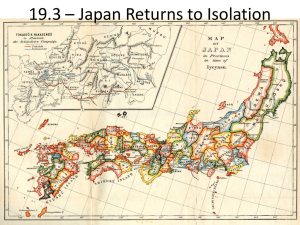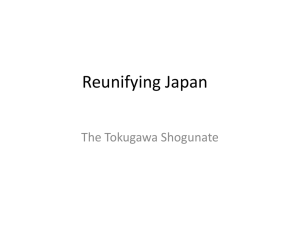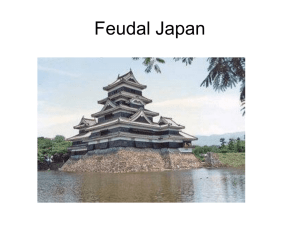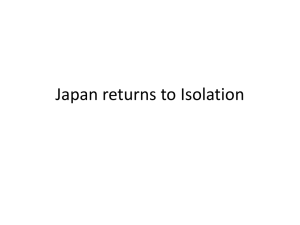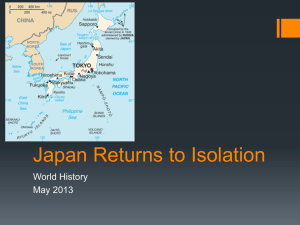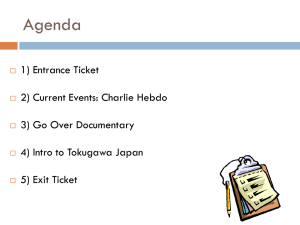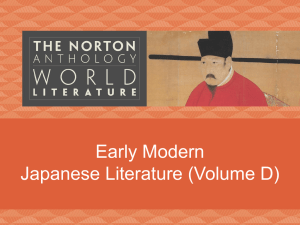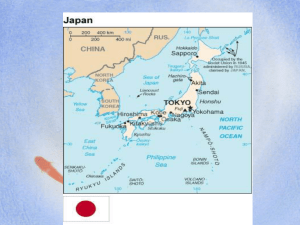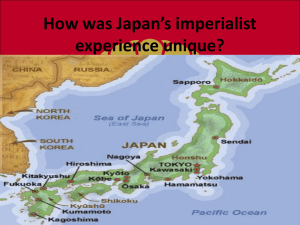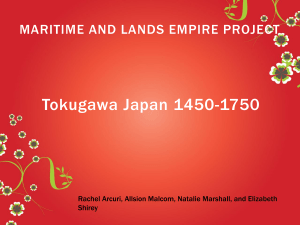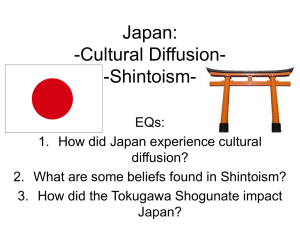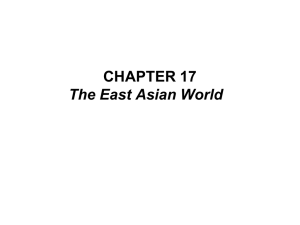Document
advertisement
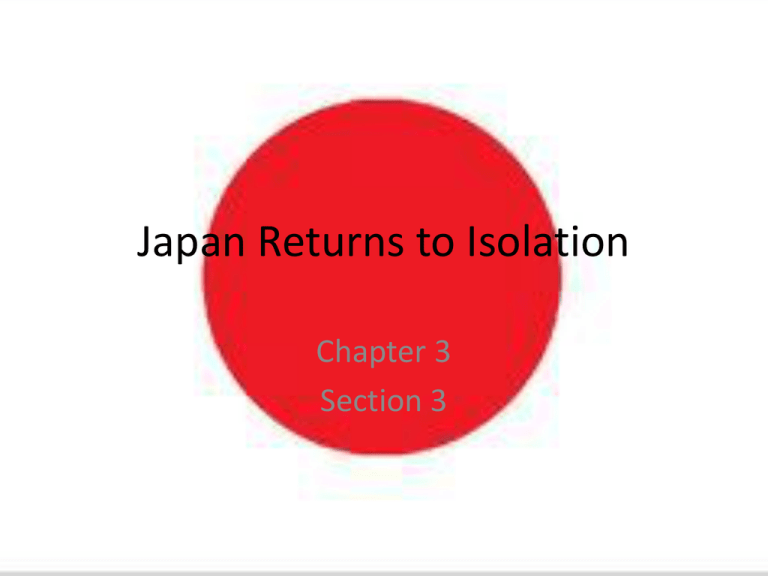
Japan Returns to Isolation Chapter 3 Section 3 I. A New Feudalism Under Strong Rulers A. Local Lords Rule • 1. Civil war shattered the feudal system this sent Japan into chaos – 1467-1568 This time period was called Sengoku, meaning ‘Warring States’ I. A New Feudalism Under Strong Rulers • 2. Powerful Samurai seized control and offered peasants protection for loyalty – These samurai chieftains were known as Daimyo, meaning ‘great name.’ A. Local Lords Under Strong Rulers • 3. The Daimyo built castles and created small armies like the European feudal system I. A New Feudalism Under Strong Rulers B. New Leaders Restore Order • 1. Oda Nubunaga – Brutal , ambitious leader who defeated his rivals and took control of the capital city: Kyoto – His motto was, “Rule the empire by force.” B. New Leaders Restore Order • 2. He did not unify Japan and committed seppuku: ritual suicide after his general turned on him B. New Leaders Restore Order • 3. His best general, Toyotomi Hideyoshi, continued the mission. • 4. Hideyoshi controlled most of Japan and tried to continue into Korea, but after he died, the troops were withdrawn. I. A New Feudalism Under Strong Rulers C. Tokugawa Shogunate Unites Japan • 1. Tokugawa Ieyasu unites Japan in 1600 • 2. Shogun’s held power until 1867 C. Tokugawa Shogunate Unites Japan • 3. Ieyasu tamed the Daimyo through his ‘alternate attendance policy’ – They would spend alternate years living in the capital while their families were held in Edo . II. Life in Tokugawa Japan A. Society in Tokugawa Japan • 1. Japan had 250 years of prosperity under the Tokugawa Shoguns • 2. Rank in society was as follows: – Emperor (figurehead) – Shogun (actual ruler) – Daimyo (landholding samurai) – Samurai warriors – Peasants – Merchants Japanese writing meaning “prosperity” II. Life in Tokugawa Japan A. Society in Tokugawa Japan • 3. They followed the teaching of Confucius: – Agriculture is more valued than commerce – For this reason, peasants had high taxes and the hardest life A. Society in Tokugawa Japan • 4. By the 1700s Japan was becoming an urban society as people moved into cities. II. Life in Tokugawa Japan A. Society in Tokugawa Japan • 5. Women were expected to – Work in the fields – Manage the household – Care for children – Obey their husband II. Life in Tokugawa Japan B. Culture Under the Tokugawa Shogunate • 1. Samurai would attend ceremonial dramas called ‘noh.’ – These were based on tragic themes. B. Culture Under the Tokugawa Shogunate • 2. New Cultural styles began to take the place of traditional art: – Haiku poetry 5-7-5 – Kabuki theater. This used elaborate costumes, music and dance about modern life. A Haiku I Made Up! On a learning scale Those who work hard will not fail This is no tall tale A Haiku Someone Else Made Up! Arrest Attention Arouse Curiosity Start Conversation Scott Anderson
